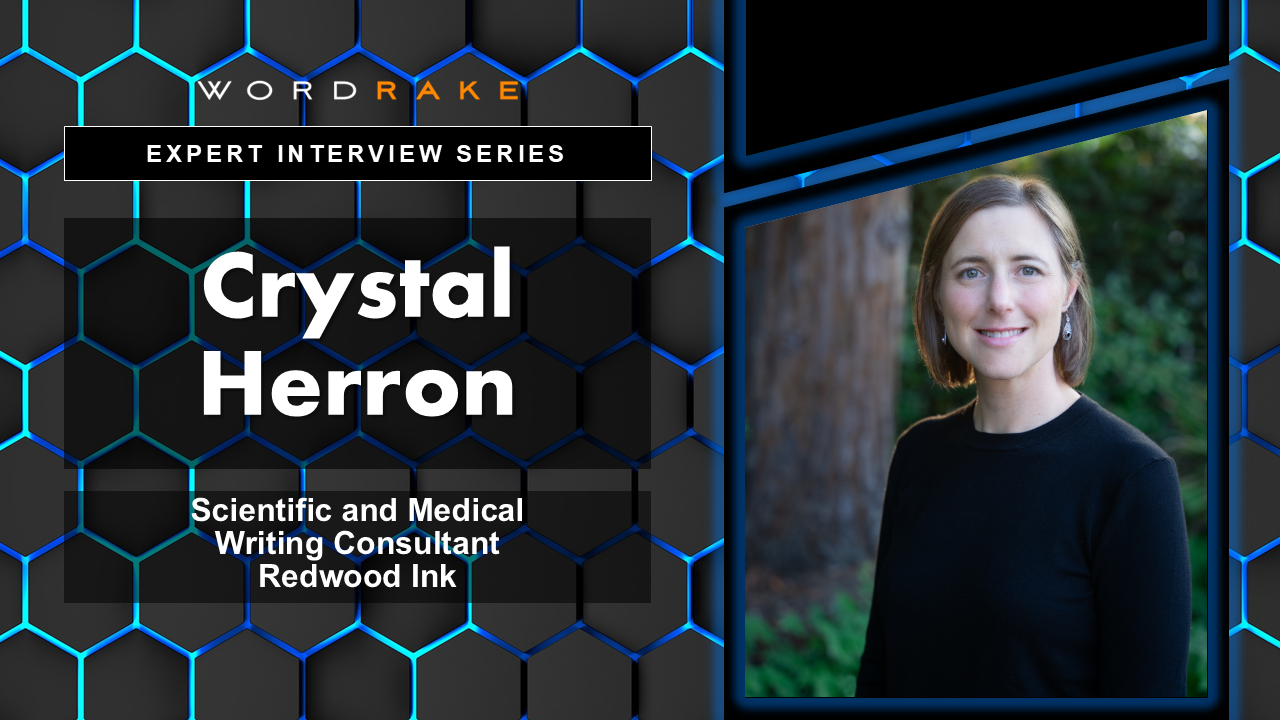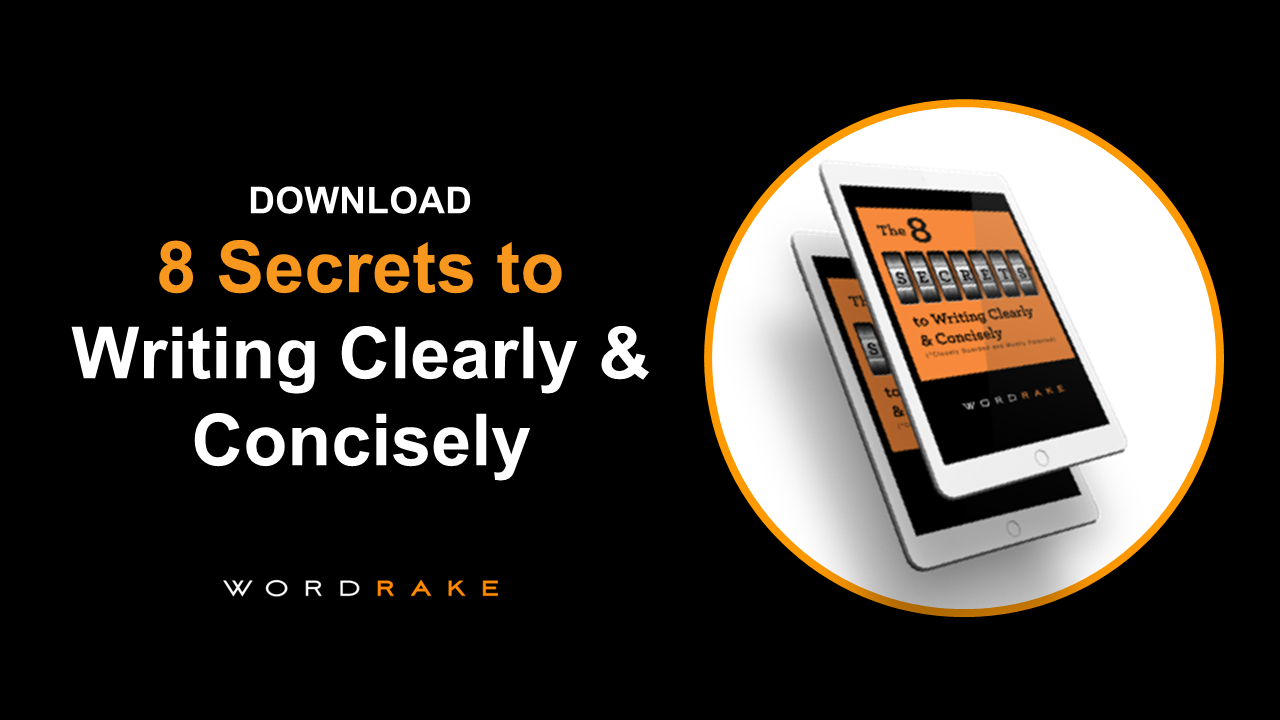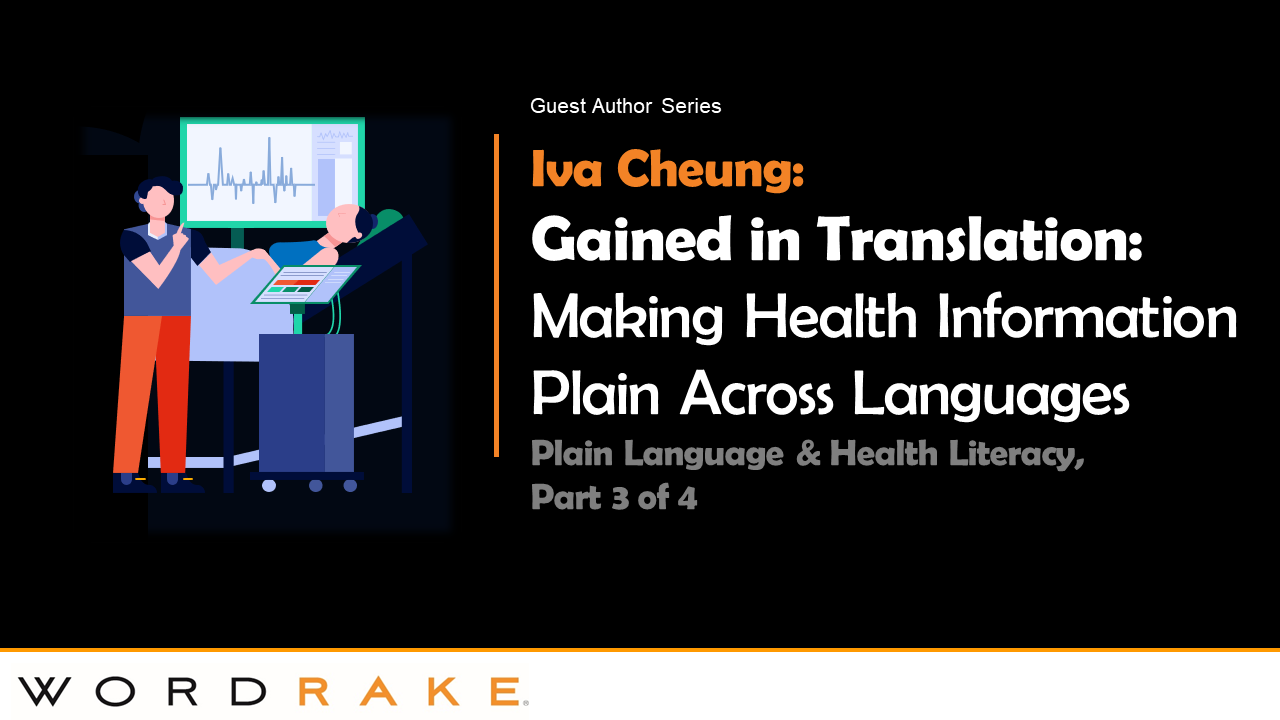There's a difference between knowing your craft and writing clearly about your craft. As a writing consultant, Crystal Herron, PhD, ELS(D), CMPP, helps scientific and medical professionals write with readers in mind. Read about her role and thoughts on how people are taught to write.
What is your role and how are you involved in editing?
I am the Founder and CVO of Redwood Ink, which provides editing services and professional development programs in scientific and medical writing for scientists, clinicians, and other professional writers.
I split my time between editing and training. I substantively edit biomedical and clinical manuscripts and grants for academic and industry researchers. I also lead webinars, workshops, and courses to help researchers and other professional writers master the craft of writing so they can write with intention and maximize their impact in their field.
What do you love about your job?
What I love most about my job is that I have the honor of serving others and helping them learn to write well.
Many scientists and clinicians do not get adequate training in how to write beyond undergraduate courses. So they have to learn on their own or—if they’re lucky—from an invested mentor who may or may not have had adequate training themselves. I love that I get to help them refine their writing to illuminate their science, unlearn their poor writing habits, and relearn how to convey their ideas clearly and persuasively.
I am most delighted by my job when I get emails from my clients and students that tell me that my feedback has helped them become a better writer, their manuscript was accepted without revisions, or they are grateful to have me on their extended team.
What are your writing pet peeves?
I don’t have any writing pet peeves. Many scientists and clinicians don’t get adequate training in how to write well. And I know they don’t write certain ways with the intention to annoy me. I believe that my job is to serve them and teach them how to write better so they can break bad writing habits.
What are the qualities of good scientific and medical writing?
Writing has a lot of nuance, so listing the qualities of good scientific and medical writing would take some time. But I have three driving philosophies.
Make the reader’s job easy. When given the choice, many people will choose the path of least resistance. Yet, some authors create more resistance for readers by forcing them to weed through complex language to understand their ideas. My philosophy is to simplify the language so that readers can easily understand the authors’ ideas and thinking. My motto is to simplify the writing to amplify the science.
Maintain accuracy and integrity. Integrity is vital for building and maintaining trust in science and medicine. This integrity is rooted in honesty, responsibility, objectivity, transparency, professionalism, and ethical behaviors. I believe that authors can convey these characteristics with writing that accurately reflects their work and thinking with integrity.
Strive to enlighten readers. I tend to challenge the traditional approach of using complex language that gives the illusion of impressing readers. Instead, I believe that the most powerful way to impress readers is to enlighten them. So I encourage a modern style of writing that focuses on using storytelling and simplicity to engage, inform, and persuade readers.
How does AI change things for professional writers? Is there still value in hiring a human?
“AI” is such a broad term, so I’ll narrow it down to “LLMs,” or large language models, which are what many people use for writing. I think that LLMs can be helpful technology tools and maybe even inexperienced thought partners, like interns. But I think that users need to be aware of the limitations and ethical implications of using LLMs.
Lately, I’ve been thinking a lot about two aspects of using LLMs. One is that many people like using LLMs because they want some relief from the hard work of writing. But I think that writing is hard not because the writing itself is hard, but because the thinking needed to write is hard. But this hard work of thinking, and the process of refining our writing, is how we also refine our thinking. If we over-rely on LLMs, we deprive ourselves of the opportunity to refine our thinking.
The other aspect I have been thinking a lot about lately is that a core limitation of LLMs is that they lack consciousness or awareness. This consciousness is crucial for crafting writing that connects with readers in the way they need—physically, mentally, emotionally, and intellectually. And this connection requires empathy, a consideration of the human experience, and an understanding that communication is a two-way process. These features are uniquely human. So I believe that only humans can bring the awareness and intention needed to truly connect with readers.
Who should hire an editor?
I believe that everyone can benefit from collaborating with an editor—even professional editors like me.
We all overlook mistakes and get too close to the writing to notice what can be improved. We also all face the curse of knowledge, which I think is the greatest contributor to poor writing. The curse of knowledge is when we—unknowingly and unintentionally—assume that readers know what we know. In other words, we have become so used to having knowledge about a certain topic that we’ve forgotten what it’s like to not have that knowledge. And when we forget that, we also lose some of the empathy we need to connect with readers who don’t know what we know.
By collaborating with an editor, we can overcome the curse of knowledge and ensure that our writing is the best it can possibly be for our readers.
How do you find the right editor to work on your project?
Editing is very personal and can feel very vulnerable for authors. When you collaborate with an editor, you are allowing them to critique the writing and thinking you have invested days, week, months, or even years into refining. So I think that finding the right editor—one that you value and trust—is crucial.
That’s why I like to meet face-to-face with authors before editing their work. I want to learn about the background of the project and get a sense of the author’s voice, style, and personality. And I also want to start building trust so they know my intention is to make their writing the best it can possibly be while also advocating for reader’s needs.
What do you wish would change about the way people are taught to write?
I mostly work with scientists and clinicians, many of whom do not get adequate training in how to write after their undergraduate studies. So I wish that academic institutions would offer formal, comprehensive training programs for their students and faculty, in addition to editorial services to support them. Although these programs would require an investment from these institutions, the investment would pay back dividends many times over in more grant awards, higher impact publications, and a stronger reputation as a leader in science and medicine.
About Crystal Herron
Crystal Herron, PhD, ELS(D), CMPP, is a distinguished editor, award-winning educator, and writing coach who serves scientists and clinicians who want to communicate with clear, concise, and compelling writing. In 2017, she founded Redwood Ink to equip researchers and other professional writers with the principles, resources, and systems they need to write compelling manuscripts and grants in the health sciences.









